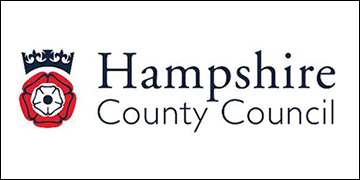“Observing our practice and reflecting on it is where you develop your knowledge”.
That is the beauty of using Hampshire County Council’s Excellent Practice Validation (EPV) framework, says Giane, a senior social worker in the authority’s older adults’ service.
EPV is a framework used for the annual evaluation of practice. It focuses on core social work values and skills and explores ways that practitioners can build on their professionalism by looking at their strengths and weaknesses, and setting themselves targets. It is completed annually by practitioners and is only available to social workers that are client-facing.

Jane is a senior social worker, work-based supervisor and AMHP
Why it’s important
The EPV helps practitioners to evidence their expertise and supports them to progress into specialist roles, says Jane, a senior social worker, work-based supervisor and approved mental health professional (AMHP) at Hampshire County Council. After completing her EPV, Jane now specialises in the Deprivation of Liberty Safeguards (DoLS).
“It focuses on your strengths-based practice, your legal literacy, what you understand and how you articulate and apply Hampshire’s policies and procedures,” says Jane. “It also looks at your professional integrity and your accountability.”
The process
Social workers can apply to be senior social workers by completing a one-off ‘light-touch’ EPV process. Once in a senior social work role, practitioners complete an annual EPV process to maintain that position.
Experienced social workers can also be recruited directly as senior social workers, with the understanding that they successfully complete a light-touch EPV process within a few months of their start date. This involves creating a portfolio of case and reflective practice examples, which their manager audits.
New starters will be expected to have their first full annual EPV portfolio completed and ready for evaluation 12 months after completion of the light-touch process.
“It’s not asking you to write an assignment or put your head in a book,” says Jane. “It’s asking: ‘What have you actually done? How did you do it? What were the challenges? What do you feel you could do?’ It’s getting you to reflect and I think that is so important.
“Some people can struggle with reflection. So, I think it’s a really good way of getting people to really, really think about their work and being able to say: ‘Do you know what? I didn’t feel comfortable when that happened.’”

Promoting social work values/Adobe
Giane, who recently completed her EPV, agrees.
“There are lots of things that you can learn in university but it’s another thing to learn by doing and that is the value from EPV,” she says.
“It allows you to reflect on your practice, question your decisions: ‘Why did you get there? What can you learn about it? How can I do it differently next time?’
“It’s a tool in your toolbox that you can use to start to advocate for the adults,” says Giane.
Improving confidence and advocacy skills
Giane reflects on how she was able to advocate for an older adult who was at risk of being transferred to a care home – somewhere she did not want to go.
Giane says: “She would agree to everything that she was offered and then cancel the package of care when she was back home, send the carers away and that included her not taking medication. That is why there was a concern that she should be in a home, where she can be monitored.”
But after Giane advocated for the woman and listened to her request to be able to stay at home, she was able to find her specialist home care that met her needs. Since then, she has flourished at home and is taking her medication.
Learning gained from experiences like these have helped to boost Giane’s confidence and advocacy skills.

Supporting older adults/highwaystarz
Feeling supported
Jane feels similarly.
“I think that EPV and the senior social worker role gives you a lot of belief in yourself. I came from a team where I was a main grade social worker, which I had been for a lot of years, but actually realised I had a lot of skills because my caseload would include many complex cases, and DoLS challenges. I could negotiate with people. I had those skills.
“When I moved to the mental health team (where she did her EPV), I was flourishing. I became a senior social worker, I got a recognition payment and I was put forward for AMHP training all within a three-month window.”
Jane was able to harness the skillset she had developed over many years and, through EPV, take on a specialism in DoLS.
She also sees the value in attending senior social work forums set up within Hampshire.
“I feel so supported because you get to have some really honest conversations about what is going on in clients’ lives. The whole process gets you reflecting and it gets you talking.”
Extending the EPV to more practitioners
Do both practitioners believe EPV should be available for social workers at the beginning of their career or for those who work in support roles but who want to transition to social work? Jane and Giane give a resounding ‘yes’.
“I think that this is something that you should be doing on entrance to social work because the reality is that, whether you’re a case worker or a senior social worker, you are dealing with similar cases,” says Jane.
“EPV should be something that every practitioner should have access to.”
Interested in a career at Hampshire County Council? Check out the authority’s employer profile, latest jobs and read more from social workers in the service here.





 Facebook
Facebook X
X LinkedIn
LinkedIn Instagram
Instagram